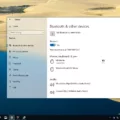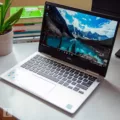Computers have become an essential part of our daily lives, helping us with various tasks and providing us with endless possibilities. However, there are times when our computers start to lag for no apparent reason, causing frustration and hindering our productivity. In this article, we will explore the reasons behind computer lagging and provide some tips to fix it.
One of the common causes of computer lagging is running too many programs simultaneously. When we have numerous programs running in the background, our computer’s processing power gets divided, resulting in slower performance. To fix this, it is important to close unnecessary programs and end processes through the Task Manager.
Another factor that can contribute to computer lagging is a virus or malware infection. These malicious programs can infiltrate our system, consume resources, and slow down our computer’s performance. Running a comprehensive antivirus scan and removing any detected threats can help resolve this issue.
Hardware problems can also lead to computer lagging. Issues with the hard drive, RAM, or graphics card can cause delays in processing and result in a sluggish computer. In such cases, it is advisable to seek professional help to diagnose and fix the hardware problem.
High memory usage can also be a culprit behind computer lagging. When our computer’s memory is overloaded, it struggles to handle multiple tasks efficiently, leading to lagging. Closing unnecessary programs and disabling startup items can help free up memory and improve performance.
Sometimes, our internet connection can be the cause of computer lagging. Slow internet speeds or an unstable connection can affect our computer’s performance, especially when we are browsing the web or streaming media. Restarting the router or contacting our internet service provider can help resolve these issues.
Tweaking the settings of our wireless network adapter can also help reduce computer lagging. Adjusting the power settings, disabling unnecessary features, and updating the network adapter drivers can optimize our wireless connection and improve overall performance.
Cleaning the DNS cache can also contribute to resolving computer lagging. DNS cache stores information about previously visited websites, and over time, it can become cluttered, leading to slower browsing speeds. Clearing the DNS cache can help refresh the connection and improve performance.
Running a loopback ping can be a useful troubleshooting step to identify potential network issues causing computer lagging. This test sends network packets to our computer’s IP address and checks for any delays or packet loss. Analyzing the results can provide insights into network-related problems.
Computer lagging can be caused by various factors such as running too many programs, virus infections, hardware issues, high memory usage, and internet connection problems. By following the tips mentioned above, we can troubleshoot and fix these issues, ensuring our computer runs smoothly and efficiently.

Why is Your PC So Laggy All of a Sudden?
There could be several reasons why your PC is suddenly running slow or laggy. Here are some possible causes:
1. High CPU Usage: When your computer’s CPU is overloaded with multiple tasks or resource-intensive programs, it can lead to laggy performance. Check your Task Manager (press Ctrl + Shift + Esc) to see which programs or processes are using the most CPU resources. Close unnecessary applications to free up CPU power.
2. Insufficient Memory (RAM): If your computer doesn’t have enough RAM to handle the tasks you’re performing, it can slow down your PC. Check your Task Manager to see if your RAM usage is consistently high. Consider upgrading your RAM if it’s frequently maxed out.
3. Malware or Virus Infection: Malicious software can significantly impact your computer’s performance. Run a full system scan using reliable antivirus software to check for any infections. Remove or quarantine any threats detected.
4. Fragmented Hard Drive: Over time, files on your hard drive can become fragmented, causing slower read/write speeds. Use the built-in Windows Disk Defragmenter or a third-party defragmentation tool to reorganize your files and improve disk performance.
5. Outdated or Corrupted Drivers: Device drivers facilitate communication between your hardware and operating system. Outdated or corrupted drivers can cause performance issues. Make sure to regularly update your drivers from the manufacturer’s website or use driver update software.
6. Startup Programs: Too many programs set to run at startup can slow down your PC’s boot time and overall performance. Use Task Manager or a third-party startup manager to disable unnecessary startup programs.
7. Overheating: Excessive heat can affect your computer’s performance. Ensure that your PC’s cooling system is working correctly and that the vents are not blocked by dust. Consider using a cooling pad or cleaning the internals if necessary.
8. Hardware Issues: Faulty hardware components, such as a failing hard drive or a defective RAM module, can cause sudden slowdowns. If you suspect a hardware issue, it’s best to consult a professional for diagnosis and repair.
Remember to regularly maintain your computer by keeping it updated, running regular virus scans, and optimizing your system.
How Do You Fix Random Lag Spikes on Your Computer?
There are several ways to fix random lag spikes on your computer. Here are some solutions you can try:
1. Update your drivers: Outdated or incompatible drivers can cause lag spikes. Make sure you have the latest drivers for your hardware, especially your graphics card and network adapter. You can usually find driver updates on the manufacturer’s website.
2. Optimize your game settings: If you’re experiencing lag spikes while gaming, try lowering your graphics settings. High graphics settings can put a strain on your system, leading to lag. You can also try disabling any unnecessary background processes or programs to free up system resources.
3. Check for malware: Malware can cause performance issues on your computer. Run a full scan with your antivirus software to check for any malicious programs. If you don’t have antivirus software, consider installing a reputable one.
4. Disable unnecessary startup programs: Some programs launch automatically when you start your computer, consuming system resources and potentially causing lag spikes. Open the Task Manager (press Ctrl + Shift + Esc), go to the Startup tab, and disable any programs that you don’t need to start with your computer.
5. Clear temporary files: Temporary files can accumulate over time and slow down your system. Use the Disk Cleanup tool to remove unnecessary files. Press the Windows key + R, type “cleanmgr”, and hit Enter. Select the drive you want to clean up and check the boxes for the types of files you want to delete.
6. Check your internet connection: Lag spikes can also be caused by a slow or unstable internet connection. Make sure you’re connected to a reliable network and run a speed test to check your internet speed. If you’re using Wi-Fi, try connecting your computer directly to the router with an Ethernet cable to see if that improves your connection.
7. Disable Windows Update Delivery Optimization: Windows 10 has a feature called Delivery Optimization that allows your computer to download updates from other computers on your network or the internet. This can consume bandwidth and cause lag spikes. To disable this feature, go to Settings > Update & Security > Windows Update > Advanced options > Delivery Optimization, and toggle off “Allow downloads from other PCs”.
8. Upgrade your hardware: If you’ve tried all the above solutions and are still experiencing lag spikes, it may be time to consider upgrading your hardware. Upgrading your RAM, getting a faster processor, or installing a solid-state drive (SSD) can greatly improve your computer’s performance.
Remember, it’s important to try these solutions one at a time to identify the root cause of the lag spikes. Hopefully, one of these solutions will help resolve the issue and improve your computer’s performance.
Why is Your PC Lagging But Nothing Else?
There could be several reasons why your PC is lagging while other devices or applications are functioning normally. Here are some possible explanations:
1. Insufficient RAM: If your computer has limited random access memory (RAM), running multiple programs simultaneously can cause lagging. When the RAM is overwhelmed with tasks, the computer may struggle to allocate enough memory to each program, resulting in slower performance.
2. High CPU usage: Certain programs or processes may be consuming a significant portion of your CPU’s resources, causing the overall system performance to slow down. To determine the culprit, you can open Task Manager (press Ctrl+Shift+Esc) and check the CPU usage under the Processes tab. If a particular program or process is using a high percentage of CPU, you may consider closing it or troubleshooting further.
3. Background processes: Some programs or services running in the background can consume system resources and impact overall performance. These processes may include antivirus scans, system updates, or scheduled tasks. Checking for any ongoing background processes and disabling unnecessary ones can potentially improve your PC’s speed.
4. Overheating: If your computer’s cooling system is not functioning optimally, it may lead to overheating, causing the CPU to throttle its performance to prevent damage. Overheating can result from a buildup of dust in the cooling fans or inadequate airflow. Cleaning the fans and ensuring proper ventilation can help prevent overheating and improve performance.
5. Outdated hardware or drivers: If your computer’s hardware components or drivers are outdated, they may not be able to handle the demands of newer software or applications, leading to lagging. Updating drivers and considering hardware upgrades, such as adding more RAM or upgrading the hard drive to a solid-state drive (SSD), can enhance your PC’s performance.
6. Malware or viruses: Malicious software can significantly impact your computer’s performance. Viruses, spyware, or other malware can run in the background, utilizing system resources and causing lag. Running a full system scan using reliable antivirus software can help detect and remove any malicious programs affecting your PC’s performance.
7. Fragmented hard drive: Over time, the files on your hard drive can become fragmented, meaning they are scattered across different physical locations. This fragmentation can slow down file access and overall system performance. Running the built-in Disk Defragmenter tool or using third-party disk optimization software can help consolidate fragmented files and improve performance.
8. Insufficient storage space: If your computer’s hard drive is nearly full, it can impact performance. When the disk space is running low, the computer may struggle to allocate temporary files or virtual memory, leading to lagging. Deleting unnecessary files or moving them to an external storage device can free up space and improve performance.
Remember, the causes of PC lagging can vary, and it may require some troubleshooting to identify and resolve the issue.
Why is Your Computer Lagging All of a Sudden on Windows 11?
There are several possible reasons why your Windows 11 computer may suddenly start lagging and running slowly. Let’s explore them in detail:
1. Background Processes: Your computer may be burdened with unnecessary background processes that consume system resources. These processes can slow down your computer’s performance. To address this, you can manually disable or limit certain background processes to free up resources.
2. Automatic Updates: Windows 11 regularly installs updates in the background to enhance security and performance. However, these updates can sometimes cause temporary slowdowns as they utilize system resources. If you notice sudden lag after an update, it could be due to the update process. Typically, these slowdowns resolve themselves once the update is complete.
3. Third-Party Services: Some third-party applications and services running in the background can contribute to system lag. These services may start automatically when you boot your computer and consume resources even when not in use. Consider disabling or uninstalling non-essential third-party applications to improve system performance.
4. Misconfigured Notifications: Windows 11 notifications can also impact system performance. If you have numerous applications sending notifications, it can strain your computer’s resources. You can review and adjust the notification settings in the Windows Settings to reduce the number of notifications you receive, thereby improving performance.
5. Privacy Settings: Certain privacy settings in Windows 11, such as location tracking or background app permissions, can impact system performance. Disabling unnecessary privacy settings can help alleviate the strain on your computer’s resources.
Conclusion
A computer is an essential tool in our modern world, but it can sometimes face issues that cause it to run slowly. This can be frustrating and impact productivity. However, there are several solutions to fix a slow computer. Running the troubleshooter can help identify and resolve any underlying issues. Modifying the registry settings can optimize the computer’s performance. Using a VPN can help improve internet connectivity and reduce ping spikes. Restarting the internet connection can also help resolve any network-related issues. Tweaking the wireless network adapter settings can improve the computer’s wireless performance. Cleaning the DNS can help resolve any domain name resolution issues. Running a loopback ping can help diagnose network connectivity problems. By implementing these solutions, you can effectively address the causes of a slow computer and restore its performance.







